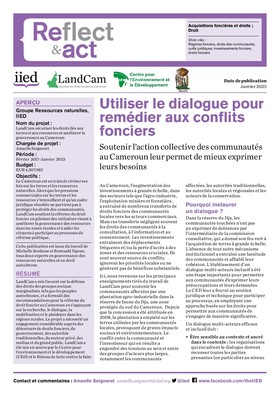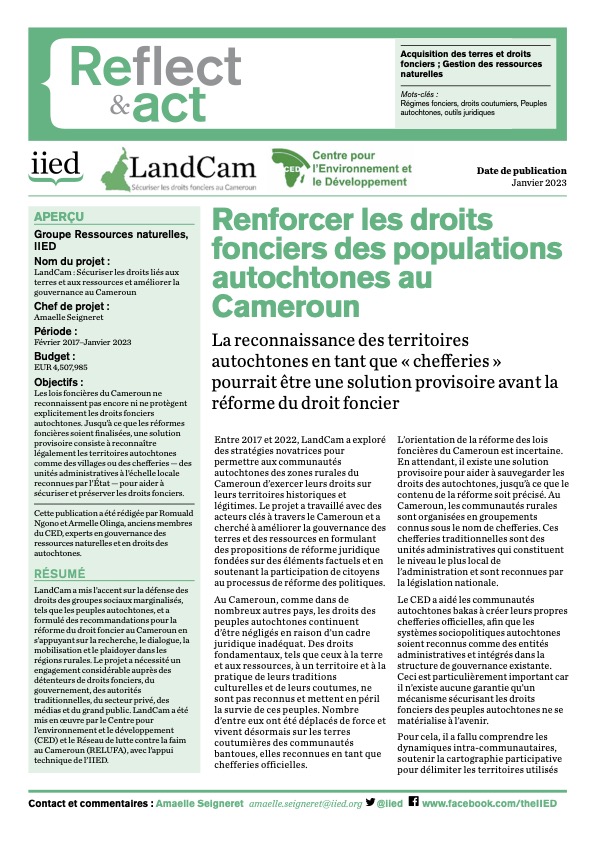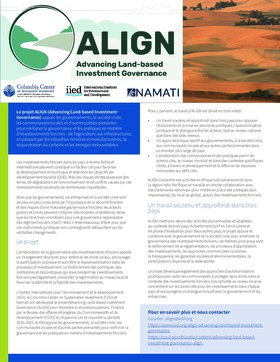Focal point
Location
Mission
Our mission is to build a fairer, more sustainable world, using evidence, action and influence in partnership with others.
Who we are
IIED is one of the world’s most influential international development and environment policy research organisations. Founded in 1971 by economist Barbara Ward, who forged the concept and cause of sustainable development, we work with partners on five continents. We build bridges between policy and practice, rich and poor communities, the government and private sector, and across diverse interest groups. We contribute to many international policy processes and frameworks, including the Intergovernmental Panel on Climate Change, the Millennium Ecosystem Assessment and the UN conventions on climate change and biological diversity.
What we do
IIED carries out research, advice and advocacy work. We carry out action research — generating robust evidence and know-how that is informed by a practical perspective acquired through hands-on research with grassroots partners — and we publish in journals and maintain high research standards. We advise government, business and development agencies, and we argue for changes in public policy. We focus on bottom-up solutions, stay open to flexible, adaptable solutions and are marked by a tradition of challenging conventional wisdom through original thinking.
Resources
Displaying 6 - 10 of 367Promouvoir une gouvernance foncière inclusive et participative au Sénégal
Au Sénégal, malgré d’évidents progrès législatifs en matière de parité hommes-femmes, les femmes restent encore minoritaires, voire absentes des instances stratégiques et opérationnelles de gouvernance foncière au niveau communal. Cette situation est pourtant très loin de correspondre à leur contribution effective à la production agricole, notamment les cultures vivrières.
Utiliser le dialogue pour remédier aux conflits fonciers
Au Cameroun, l’augmentation des investissements à grande échelle, dans des secteurs tels que l’agro-industrie, l’exploitation minière et forestière, a entraîné de nombreux transferts de droits fonciers des communautés locales vers les acteurs commerciaux. Mais ces transferts négligent souvent les droits des communautés à la consultation, à l’information et au consentement. Les investissements entrainent des déplacements fréquents et/ou la perte d’accès à des zones et des ressources cruciales.
Renforcer les droits fonciers des populations autochtones au Cameroun
Au Cameroun, l’augmentation des investissements à grande échelle, dans des secteurs tels que l’agro-industrie, l’exploitation minière et forestière, a entraîné de nombreux transferts de droits fonciers des communautés locales vers les acteurs commerciaux. Mais ces transferts négligent souvent les droits des communautés à la consultation, à l’information et au consentement. Les investissements entrainent des déplacements fréquents et/ou la perte d’accès à des zones et des ressources cruciales.
(Re)claiming power in value chains: A guide for small-scale farmers and their advocates
This guide is intended to support smallholder farmers, and advocates working closely with them, in exercising more agency and living more independently according to their own priorities. It aims to assist smallholders in making free choices in relation to farm production, markets and trade. Farmers with agency can negotiate with, and challenge, the people and institutions that affect their lives.
ALIGN - Faire progresser la gouvernance des investissements fonciers
Le projet ALIGN (Advancing Land-based Investment Governance) appuie les gouvernements, la société civile, les communautés locales et d’autres parties prenantes pour renforcer la gouvernance et les pratiques en matière d’investissements fonciers - de l’agriculture aux infrastructures, en passant par les industries minières et manufacturières, la séquestration du carbone et les énergies renouvelables. Ce fascicule présente les objectifs, les activités et les partenaires du projet.








